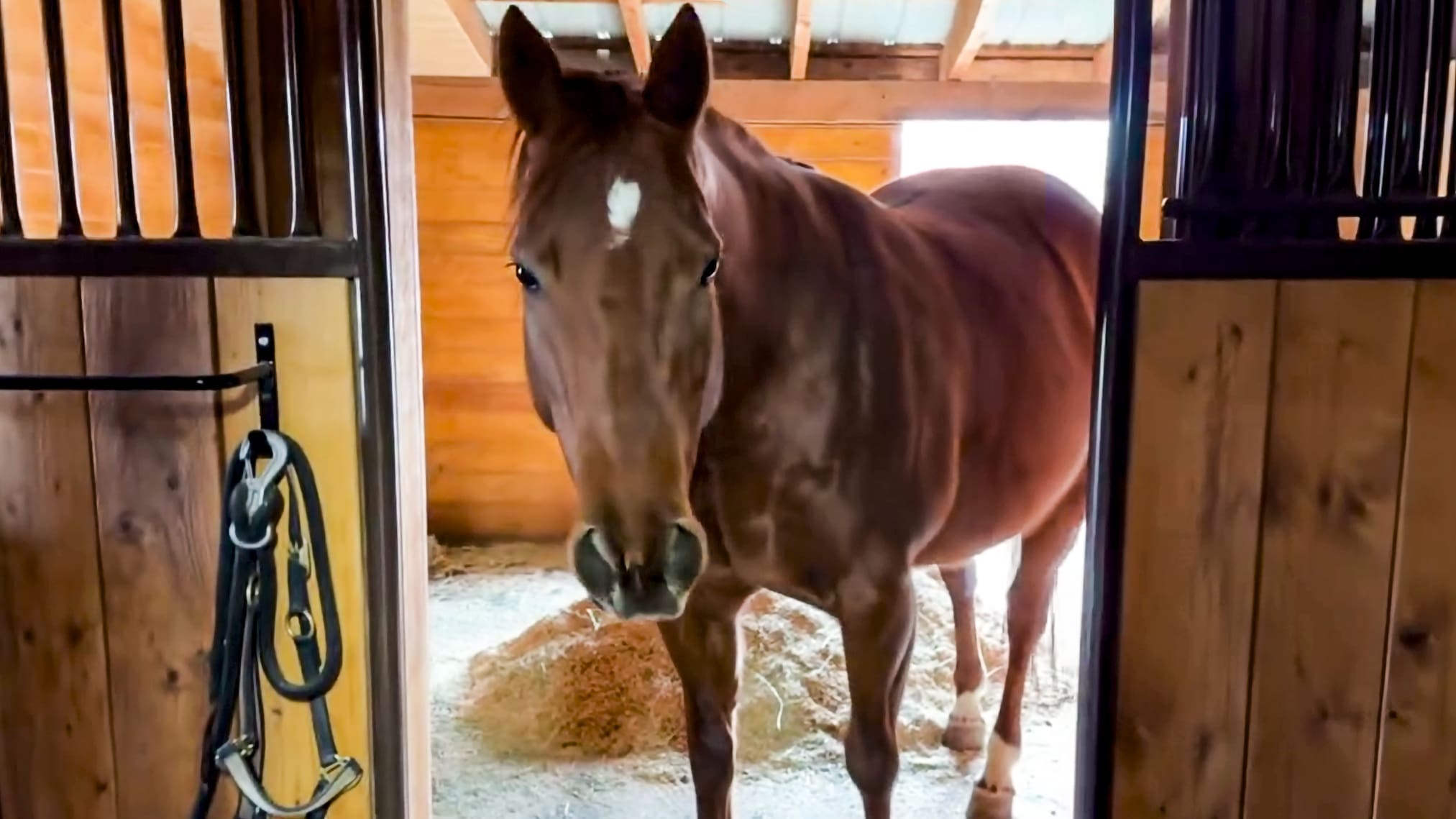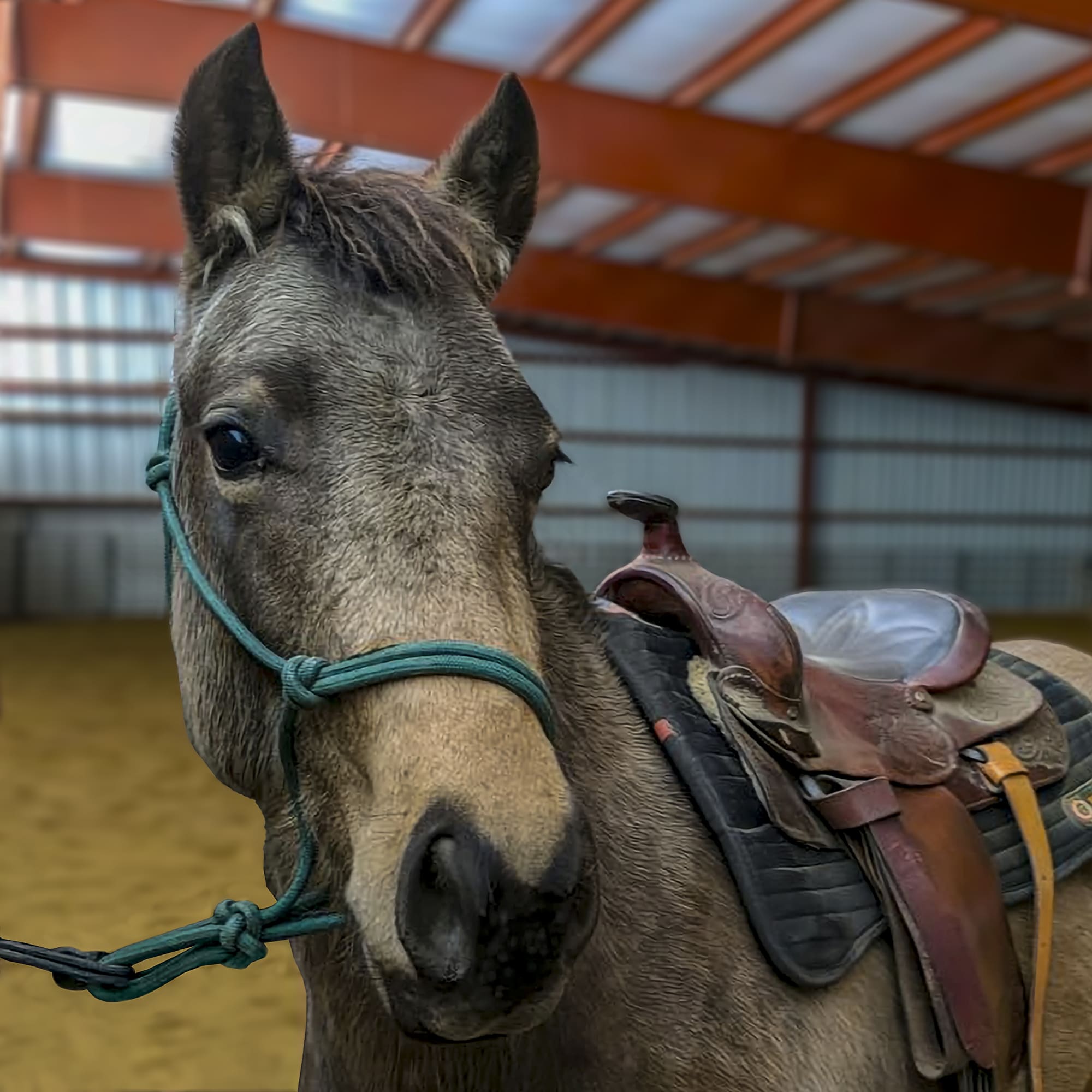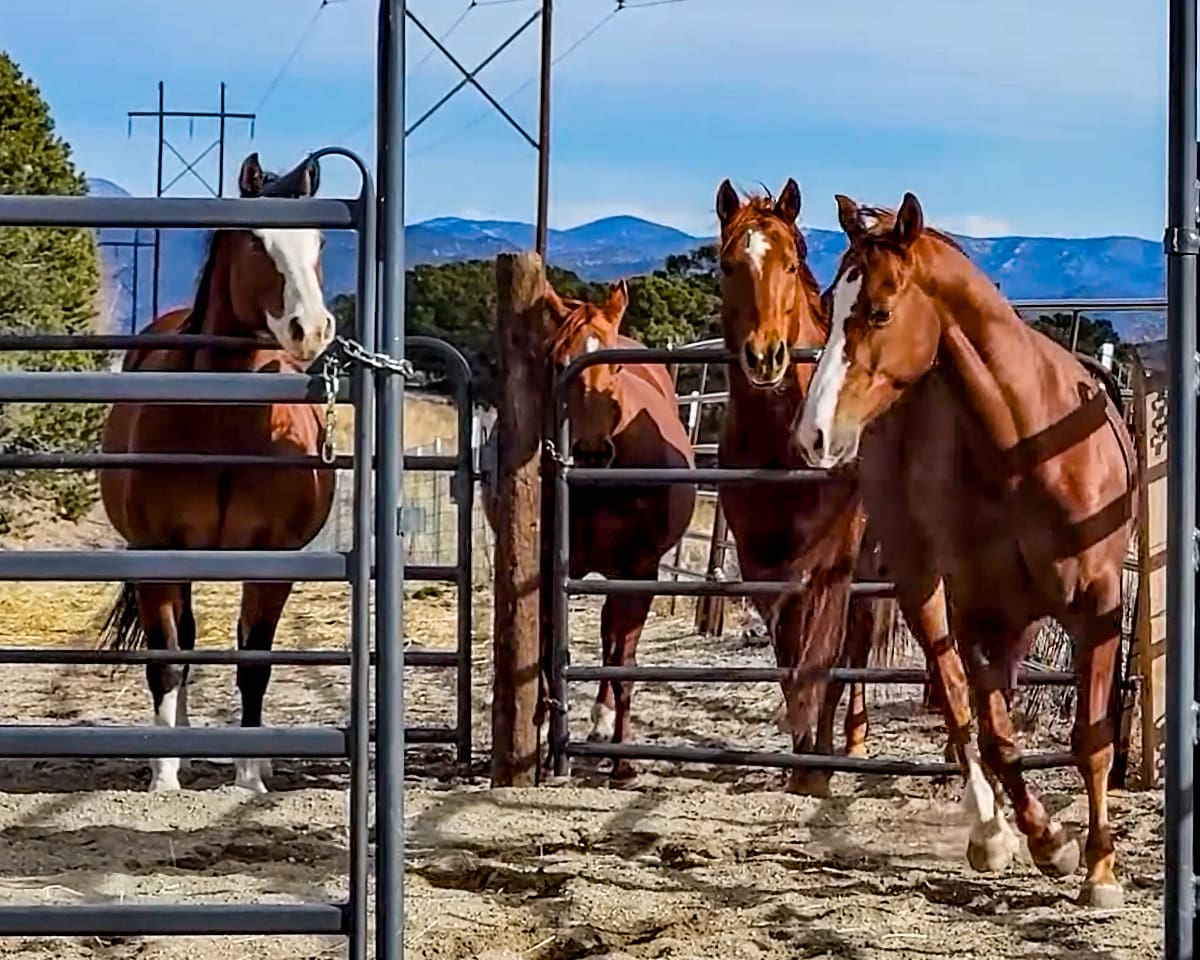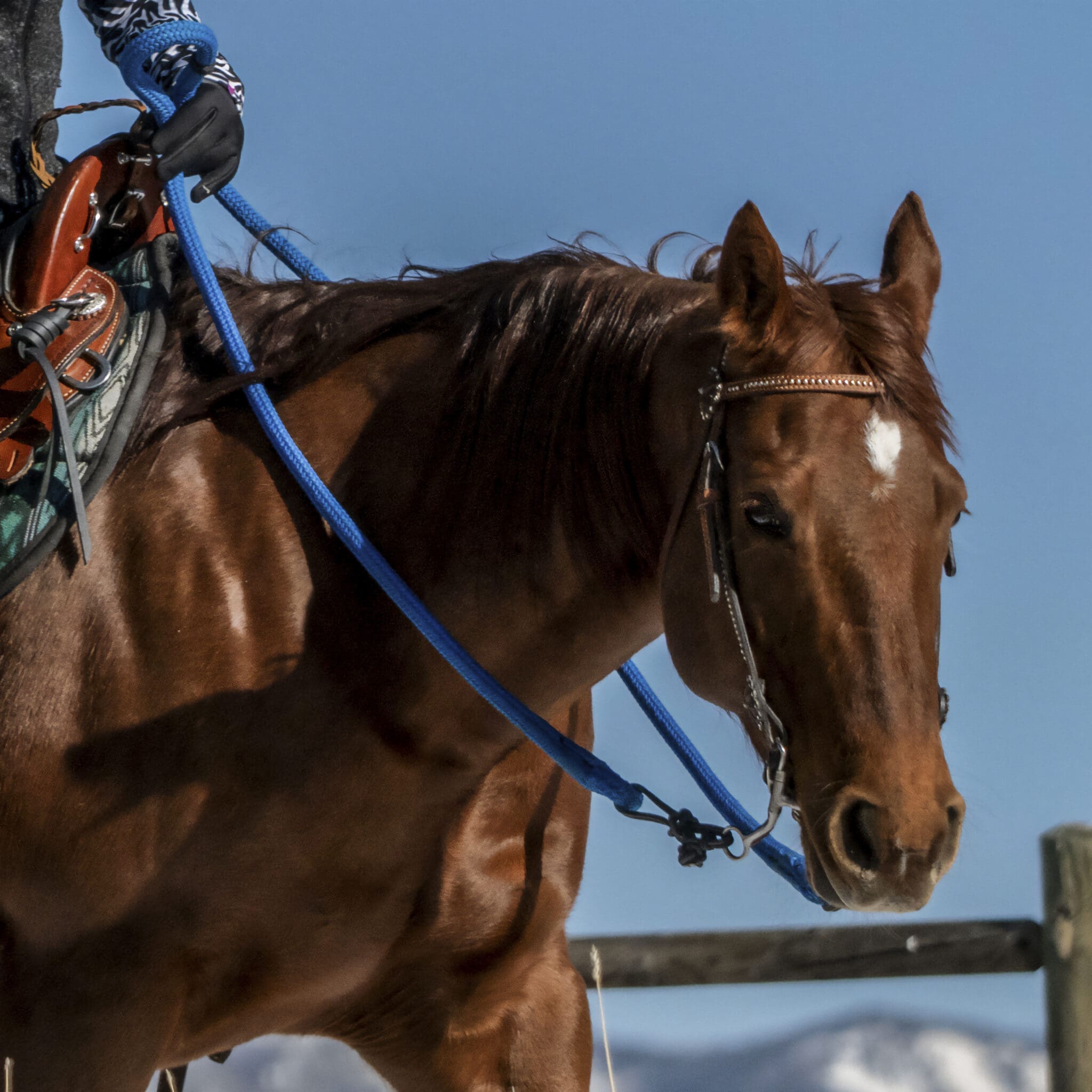Imagine a Career with Horses
Not once in my childhood, in high school nor college, did it ever occur to me that I might have a career in the horse industry. Certainly, in my wildest dreams, I never would have imagined teaching horsemanship as a career for nearly three decades. The first time someone paid me to ride a horse, I was 14 years old and I could not believe my lucky stars—that someone would pay me money to ride a horse! But even then, I never thought of a full-time career with horses. Little did I know that all I did then was preparing me for what I’m doing now. Little did I know then that there are so many ways to work with and around horses. I love that I can combine my love for horses with a career that helps horses—and horse owners.
I have been asked many times if I think there are good career options within the horse industry. While I may not have thought of a career in horses when I was young, I know now that the horse industry is full of great opportunity—if you are willing to take initiative and be creative. You don’t have to ride broncs or muck stalls to be a part of it. People who are smart, educated, passionate and motivated will find opportunity in abundance. Any opportunity you can imagine in the “real world” is most likely available with a horse slant. For individuals who are driven, have dedication and focus, it is possible to combine what you love with what you do. You don’t have to be a hot-shot rider or have calluses on your hands and strong back muscles to find great success in the horse industry—there is opportunity aplenty for those who seek opportunity.
My First Horse Education
My horse training career started at a young age—even if I didn’t know it yet. I grew up on a small horse farm in central Florida with horses, ponies, sundry farm animals and the occasional exotic creature. I was smitten with the horses from the earliest age and I was privileged to have the opportunity to grow up with them and have a father that loved horses and adventure of all kinds.
I delved hard into horse sports as a youth rider and my father, recognizing my passion and my dedication, made sure I got the best education as a rider that he could. He made sure I always had safe and talented mounts and a good trainer to guide me along the way. Although my father is a true Western guy, he allowed me to pursue my dream of riding jumpers and made sure I had the training and education that I needed to do it right. Thus, one of the cornerstones of my career was being formed before we knew it—the solid foundation of classical riding.
Horse activities were something we did for fun—and how could something fun possibly be work? Didn’t work, by definition, have to be something that you didn’t want to do?
It wasn’t until after I graduated from college and got offered a job running a respectable training and breeding farm, that it first occurred to me that perhaps horses were a career option. That was, by the way, after working my way through college riding race horses. The horse industry found me; I didn’t really go looking for it. But honestly, even if I had planned from an early age to be in this business, I am not sure I would have done it any other way. I focused on education first then kept horses close as a hobby and side job. Soon, the two would combine as one career.
Educated Equestrians
What you do need, even if you are a hot-shot rider, is a good education. Like any industry, we in the horse business want to hire people that have good communication skills, good business savvy and an awareness and understanding of the horse industry at large. We are looking for people who are hardworking and dedicated and want to learn and grow—instead of those who are star riders for a fleeting moment.
Even if you are a good rider, getting a college education is paramount to success. If I could do anything over again in my career, I would have majored in business in college. What sets apart successful horse people from the mediocre is their business acumen. Finding employees that are good with horses is not hard; finding people that also have good business sense is what makes employers excited. For me, all the good riding, training and teaching talent I have would have meant nothing without also having good business management along the way.
The horse industry encompasses a huge, diverse spectrum and the more parts of it you know and have experience with, the more your opportunities expand. For me, riding and training in many different aspects of horse sports and horse breeds was a huge contributing factor for success. Although I never planned it that way, having diverse experience (with different breeds, disciplines, associations and areas of the country) not only has taught me a lot about horses, people and the industry, but it has opened many doors for me as well.
Key Advice and Reality Check
The two most common pieces of advice I offer when asked about careers in the horse industry, are to get a college education—preferably business or science-based— and to get as much experience in as many different areas of the horse industry as possible. That may mean volunteering, seeking internships (paid and unpaid), attending shows and offering to help, asking people you admire how they got to their station, and asking to shadow those you admire. Combine that drive with passion and dedication, and you will be unstoppable—whether you ride or not.
For many young people, a career riding and training horses seems appealing. I’ll admit, riding and training are a big part of my passion and a big part of what I do, but it has its downside. Riding, training and the hands-on side of the horse industry involves a lot of hard physical work, long days and long weeks for little pay. When you are in your 20s and 30s and riding 6-10 horses a day, it doesn’t seems so bad, but make sure you have a realistic future ahead of you. You may not want that fast pace and furious work for your body a little later.
As much as I love to ride, I learned fairly young that 1) there weren’t enough hours in the day for me to ride enough horses to get anywhere in my career, and 2) I wasn’t going to last riding the horses that no one else wanted to ride and I needed to take care of my body. I needed to pick the horses I ride wisely and guide my career in a direction that was profitable in the long run. I did not want to end up destitute in retirement, like many of the trainers I saw. Even though I was pretty good at training horses, I needed to diversify and have greater vision for my future.
On a daily basis, I work with colleagues in the industry that have great careers (read that: good pay, good benefits, room to advance) who are not riders, trainers, barn managers or instructors. Like almost any industry, we have great need for business managers, marketing, accounting, journalism, manufacturing, sales, fashion, nonprofit administration, medical technicians, nutrition, facility management, event planning and all things digital from social media to website design and maintenance.
Having a solid education and meaningful experience in as many different aspects of the horse industry as possible will almost certainly guarantee success. I’ve enjoyed working with several different universities that offer programs for equine majors and staying involved in what it takes to produce successful graduates that are wanted and needed by those of us in the horse industry.
There are many great college programs for equine majors that include horse education as well as practical business management courses. I encourage young people to look at the programs, such as Colorado State University, that are aligned with business administration and are science-based. Getting a broad-based traditional education will serve you well. In my opinion, you can get your hands-on horse experience at the barn—go to college to get a college education in all the other important stuff.
To get a job in the horse industry, you’ll need a love of horses, experience with horses and the willingness to work hard. But to have a successful career and thrive in the industry, you’ll need a college education, a broad-based view of the industry at large, ambition and dedication. If that sounds like you, buckle your seatbelt and hang on for the ride, because you are going far!




No comment yet, add your voice below!